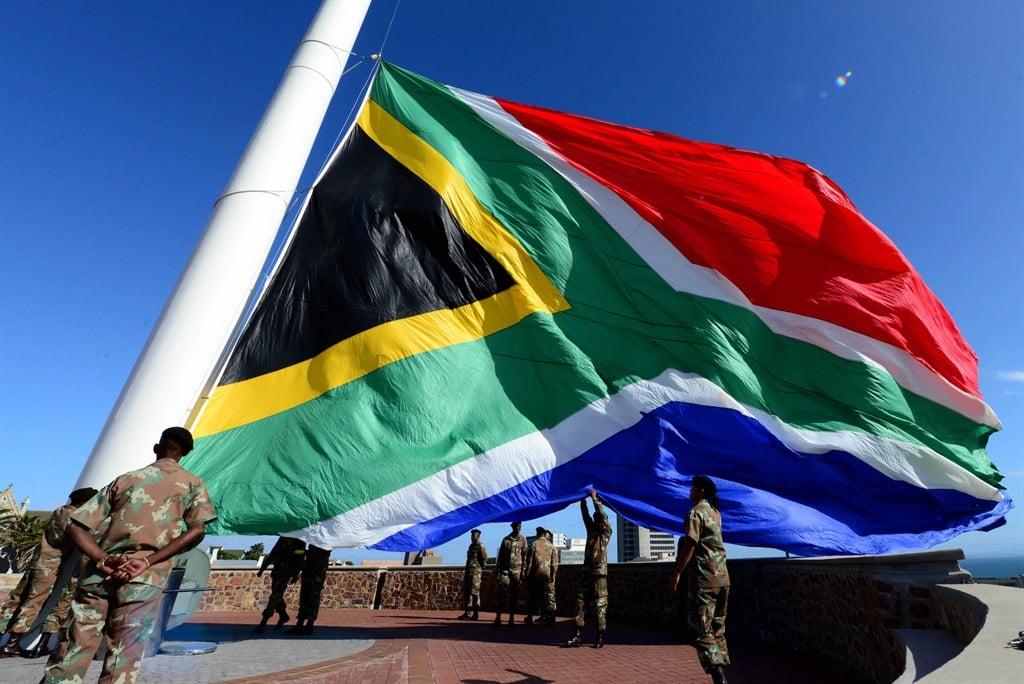Africa-Press – South-Africa. As South Africa celebrates Human Rights Day on Tuesday, there are still many challenges that prevent citizens from fully accessing their rights, political players have said.
Human Rights Day is celebrated on the anniversary of the Sharpeville massacre in 1960. During a peaceful protest against unjust pass laws, 69 people lost their lives and 180 were wounded when police opened fire.
This year’s Human Rights Day comes at a time when the country continues to battle several human rights challenges, including the power crisis, according to the South African Human Rights Commission.
Other challenges included climate change and natural disasters, gender-based violence, unemployment, lack of service delivery, rampant corruption as well as crime and racial tension, the commission said.
“As South Africa commemorates this day, the commission calls on all South Africans to hold fast to their fundamental freedoms in all that we do, and at all times to be reflective that together acting with dignity and respect, we will get through these challenges, and emerge a nation proud of its human rights culture and importantly united in our diversity,” the commission said.
Human Rights Day presented an opportunity for all South Africans to reflect on the “country’s painful and unjust past” and the significance of the transition from apartheid to the democratic dispensation, the commission added.
The Commission said:
Parliament’s presiding officers – National Assembly Speaker Nosiviwe Mapisa-Nqakula and National Council of Provinces Chairperson Amos Masondo – said since the dawn of democracy, peaceful protests by every person or under political formations were guaranteed in the Constitution and the Bill of Rights.
“However, it is the responsibility of those who participate as well as the law enforcement officers to ensure that no one infringes on the rights of others when they exercise theirs,” the presiding officers said.
“Parliament promotes and supports the right to peaceful protest and demonstration and urges all South Africans, at all times, to act responsibly and ensure that no one’s right to safety is violated and intimidated.”
Mapisa-Nqakula and Masondo said that there were “challenges that continue to threaten the progress made as a country”.
“Chief among these challenges are the triple challenges of unemployment, poverty and inequality, a great socio-economic burden that is borne mostly by young people who constitute the majority in this country,” they said.
In a statement, the ANC said the country celebrated Human Rights Day “in difficult times”.
“We are aware that living conditions and the provision of basic services have seriously deteriorated for years, with a daily impact on South Africans’ lives. Citizens of this country raised challenges in accessing adequate healthcare, electricity, food and housing, and complained of low salaries that make it impossible for people to meet their basic needs,” the party said.
The party called on South Africans to redress all historical imbalances while advancing socio-economic transformation.
The ANC said:
DA leader John Steenhuisen said that as South Africans commemorated their hard-won human rights, “we must never lose sight of the basic rights of which millions are still deprived”.
“Until all South Africans have access to three meals a day, until every citizen has access to housing and sanitation, and until all South Africans can live in dignity, we will never truly be free,” he said.
Action SA said the ruling party “eroded the gains made since the 1994 election” and called on South Africans to oust the ANC at the poll next year.
“The people who fought so bravely for our democracy would not be happy with the state of Sharpeville today, with its drug problems and poverty. Neither would they be happy with the state of South Africa, and we have to fight to achieve their dreams for a better South Africa,” said Action SA president Herman Mashaba.
The EFF said the history of the Sharpeville massacre had been distorted by the ANC, adding that it “feels ashamed for not being part of the historic anti-pass demonstrations”.
“As a result, the substance of the Sharpeville massacre has been hollowed into a generic Human Rights Day to remove the prominent role of the PAC in sparking the consciousness of our people and the international community against the dompass system,” the EFF said.
“The EFF reminds the people of South Africa of the brave heroes and heroines who led the anti-pass campaign and reaffirms their role in the history of our liberation. Today, the rights which they fought and died for are yet to be attained in their entirety, as African people are still subjected to the apartheid labour reserves called townships and remain landless.”
For More News And Analysis About South-Africa Follow Africa-Press






